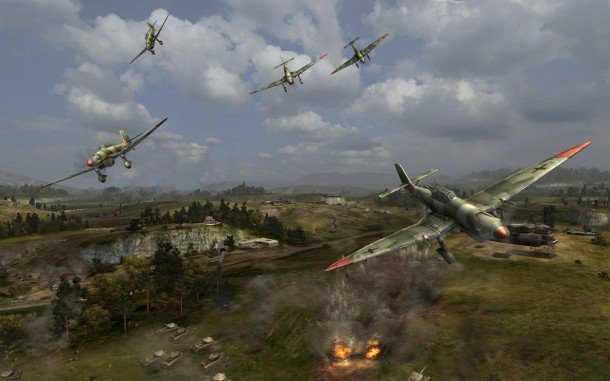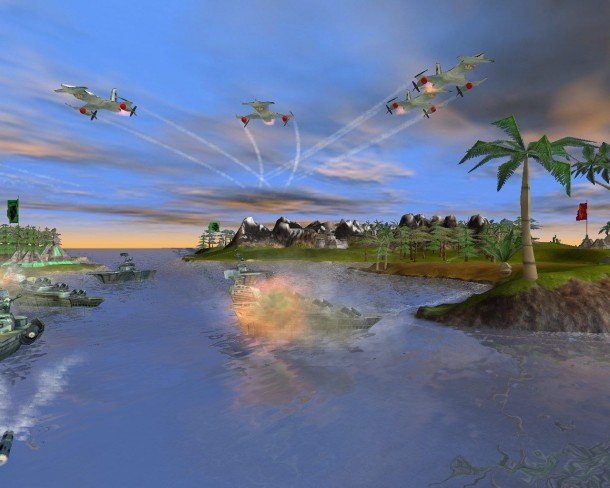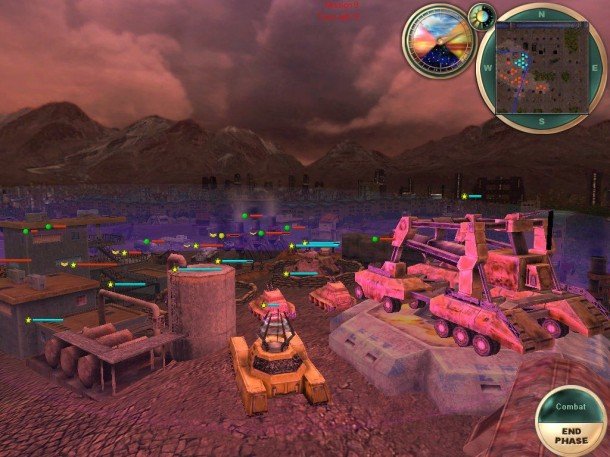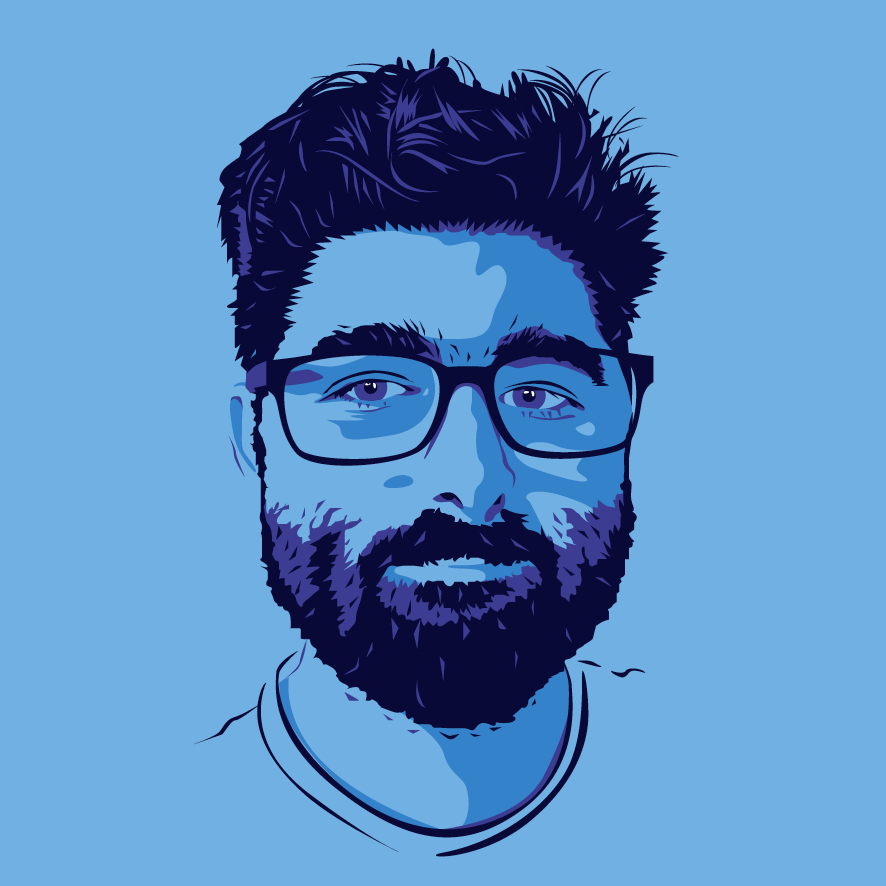The 12 year war - The rise of Wargaming.net

Order of War didn't sell well, but sales were down for everyone. The market was changing. Digital distribution services like Steam were well established, and retail sales were fading fast. For Kislyi, 2007 was the year that the boxed PC games market died. He doesn't miss it. Not even a little bit. He frames game stores as anachronistic relics rooted in the habits of centuries of human trade, rendered irrelevant by the onset of the digital age. “Every aspect of boxed business is bad,” he says. “It's a new world, those days are gone.” Wargaming.net had a new rule. “No more boxes.”
Falling retail sales wasn't the only indication that the market was on the move. Chinese and Korean free-toplay titles were migrating westwards through Russia. From their HQ in Belarus, Wargaming.net had strong ties to the Russian market and, thanks to Massive Assault, were a known name among Russian gamers. The studio had 80 employees with more than a decade of experience in game development and server infrastructure. The turn-based strategy audience had moved on to faster strategy titles with bigger budgets and Wargaming.net's first RTS had faltered. It was time for another switch-up. Their next game would be an MMO.
The game that would eventually become World of Tanks existed for four months as a “fantasy arena style battle game.” World of Warcraft's extraordinary success had convinced many developers and publishers that only a fantasy setting could work in MMOs. Things could have turned out very differently if not for the intervention of an old friend of Wargaming.net, Peter, one of the only four people in the world who played the Kislyi brothers' very first game, Iron Age. He introduced Viktor to Navy Field, an ageing 2D isometric tactical warship game with a devoted following in Russia. Viktor was inspired. “It was historical, it was authentic, and most importantly it had that free-to-play model.”
Everything came together in a meeting of old friends and colleagues in an apartment in Moscow. Viktor and Peter were there, along with the man that would become the lead producer of World of Tanks, Sergei Burkatovsky. Before taking the lift to the top floor of Wargaming.net towers to meet Kislyi, I spoke to Burkatovsky about that vital evening.

“We started brainstorming and understood that the market was oversaturated with these MMO fantasy titles,” he said. We understood that we knew nothing about fantasy games, but having released Order of War, we accumulated lots of expert guys at doing tanks. So this is how the idea came about.
“Why should we do something with a thing that we don't know anything about? We should make an MMO with the tanks we know everything about.”
It was a simple revelation, but the game that emerged from that meeting would be huge. Wargaming. net now had their big idea, an online free-to-play arena shooter that was accessible but tough. They would pack it with the sumptuous historical detail that Order of War fans enjoyed and apply the tactical nous learned building Iron Age and DBA to each tank's inner workings. Every vehicle would have its own strengths and weaknesses inspired by historical design. Every shell impact would take into account the qualities of the barrel that fired it, and the style, thickness and plane of the armour it struck. It would have depth and big, satisfying explosions. It would be easy to learn and difficult to master, like chess, except better, because it would be full of tanks.
The biggest gaming news, reviews and hardware deals
Keep up to date with the most important stories and the best deals, as picked by the PC Gamer team.
Certain that they were on to something, Wargaming.net travelled the world trying to sell the idea to publishers, but were met with uncertainty and, as Sergei explained, outright incredulity.
“They were literally laughing at us. One of the top managers of the biggest Russian company told us that it would never, ever be any kind of success, and it would fail big time, just because the person playing an MMO cannot associate himself or herself with the tank. It is not possible.”

Viktor finds this point especially amusing. “We were pretty much lucky because boys, we now know scientifically and can prove that, like tanks in pretty much the same manner across the world."
Wargaming.net decided to bypass publishers altogether and press on alone. They began in Russia, a nation shaped by the vast tank battles of the Eastern Front. Wargaming.net got in touch with historical societies and wargaming enthusiasts, returning to the same circles that Kislyi had mingled with a decade earlier while making DBA. They were determined to build the sort of community that had made Company of Heroes unbeatable. They succeeded.
Word of mouth spread fast and soon Wargaming.net found themselves swamped by thousands of players. Their technical engineers were working night shifts, powering up emergency servers to keep up with demand. They invested heavily in server infrastructure and community support, keen to retain the player base they had amassed so quickly. They made regular updates. They added new tanks, new maps and communicated closely with fans on forums.
In January last year, World of Tanks' Russian server took a Guinness World Record for hosting the highest number of consecutive players in an MMO. Wargaming.net didn't stop there. They opened offices in Europe and released World of Tanks in China. In April of this year, World of Tanks broke its own Guinness World Record, registering more than 105,000 players online at the same time. Kislyi estimates that around 13 million people have signed up to try World of Tanks worldwide. Kislyi isn't about to relax, but that's understandable. Wargaming.net haven't stood still for 12 years. World of Tanks is just the beginning of a trilogy of titles. World of Warplanes is well into development, and World of Battleships lurks on the horizon. Wargaming.net are building a world of war, and Kislyi is as excited and confident as ever about their chances in the years to come. “We can do miracles with the people we have,” he says. “It's very exciting
Part of the UK team, Tom was with PC Gamer at the very beginning of the website's launch—first as a news writer, and then as online editor until his departure in 2020. His specialties are strategy games, action RPGs, hack ‘n slash games, digital card games… basically anything that he can fit on a hard drive. His final boss form is Deckard Cain.


